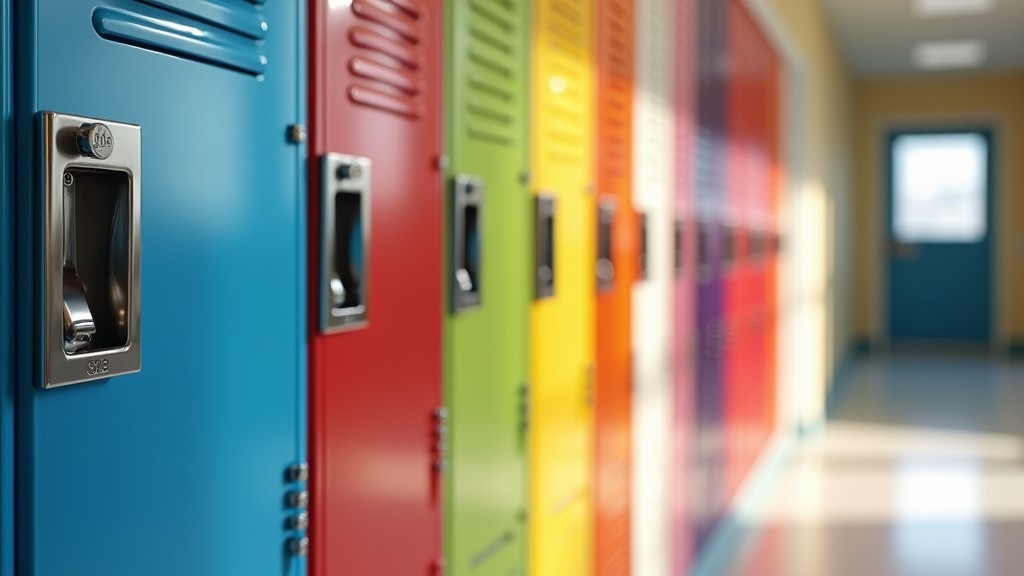Every parent wants their child to get the best possible education. Unfortunately, finding the right school can be a daunting process. Children have different talents, interests, and learning preferences, so not all of them thrive in the same type of environment. Although they’re the most convenient option, public schools are often severely underfunded. Even if you find the right school, physical distance can also be a huge impediment. Many parents have no option but to choose the closest school to home. As difficult as it may seem to select a school, it’s vital to research all available options extensively.

Whether you’re searching for a preschool or high school, here are five valuable tips that will help you make the best choice for your child.
- Consider Private Institutions
A first essential tip to consider when choosing a school for your child is to include private institutions on your shortlist. A private school may require a significant financial commitment, but the quality of the education at this private school in Roswell, GA is unmatched.
Due to limited resources, a public school can never give a child the personalized attention that he needs to thrive. Private schools, including esteemed Catholic school institutions, provide a broad curriculum and a diverse array of elective courses, ensuring students receive a well-rounded and values-driven education. They also have the flexibility to accommodate the unique personality of each child. The classes are small, and there’s an equal emphasis on independence and community. Of course, some private schools have exams just to enter, so you may need to hire a private school entrance exam tutor to get your child through.
When searching for schooling options, have a look at private institutions in your area. An elite education may be more affordable than you think. Are you in Utah? Research the top rated schools in Utah to learn more about tuition fees and financial aid options in your state. With access to world-class educational opportunities from preschool to high school, your child will have the support and assistance he needs to fulfill his potential.
- Study the Curriculum

There is no national curriculum in the United States, unlike in other countries. However, states and school districts recommend or impose specific school instruction guidelines. The curriculum is a defining aspect of the educational experience your child will have. Thus, when choosing a school, look at the depth and breadth of the curriculum and determine if it meets your child’s needs.https://total-locker-service.com/
Your child will find school rewarding if he can play to his strengths. Is your child attracted to solving problems and logical-mathematical challenges? Does your child have high verbal intelligence and loves creative writing? From a very young age, children prefer activities that utilize their innate abilities. Moreover, they have different types of intelligence. They may feel frustrated, disappointed, and insecure in a school where their intelligence is not recognized and cultivated through relevant school work.
To choose the best school for your child, give extra attention to the curriculum. Consider your child’s academic history. What subjects does your child prefer? What electives are available? Are the core subject areas explored in-depth? Whether your child has a special inclination towards science, fine arts, or athletics, he needs a school where he can refine his innate talent and discover new skills and abilities.
- Compare Resources and Facilities
To study effectively and follow their academic curiosities, children need access to well-endowed libraries, science labs, sports facilities, or media centers. Academic facilities allow students the possibility to follow their passions and develop skills through co-curricular and extracurricular activities.
No matter how highly qualified the teachers are or how enthusiastic your child is about learning, getting a good education is difficult without access to relevant resources and facilities. In your search for the best school, compare resources and facilities. Which school can provide the most advanced learning environment?
You also need to ensure the school takes the children’s safety seriously. Are the gates secure during the day, is it in a safe area? As well as this, what precautions do they have in place should the worst happen? Many schools these days are making sure they have stop the bleed kits for schools as well as other precautionary first-aid kits. You can ask any employees of the school if you are concerned about the way in which they ensure your child’s safety before you choose the school.
Whether a school is funded by the government, private sponsors, or the parents themselves, the administration should use the funds to the benefit of the students. The best school for your child is the one where facilities are prioritized. This also transpires into education providers meeting any improvement goals and accreditation like those put in place by Cognia performance standards. These standards encompass the traits of a good educational institution for those looking to really push the boundaries of excellence to qualify for accreditation.
- Visit Schools
When searching for the perfect school for your child, you may be looking online or asking family and friends for recommendations. Online research can be extremely valuable in helping you compare educational offers, tuition fees, campus facilities, and curriculum. However, online information is not enough to form an authentic impression of an institution.
An effective way to make an informed decision and eliminate all your doubts is to plan a visit to the schools that have grabbed your interest. A visit is a perfect opportunity to check if the facilities match the online presentation. Moreover, visits are essential because they give you the chance to check things that are not visible online such as atmosphere, cleanliness, order, and security.
During your visit, pay attention to the interactions between students and teachers and between students themselves. This should give you clues about how friendly and engaging the environment is. Consider scheduling a meeting with the principal, a teacher, or a staff member to discuss your questions and concerns. Ask about their teaching practices, homework policies, and any other aspect that may influence your final decision.
- Discuss Your Options with Your Child
Preschoolers may not have the knowledge and experience to tell you what they expect from a school. However, if your child already has formal schooling experience, make sure you take into consideration his preferences and feedback when deciding his next educational step. When visiting prospective schools, give your child the chance to see his options and ask him to join you as you visit and inspect each school on your list.
Have plenty of in-depth conversations with your child about his academic aspirations, extracurricular interests, future goals, interests, strengths, and weaknesses. How does your child see himself academically? Does your child value independent learning or group-driven activities? Are sports or performing arts something that your child may be interested in? Every detail matters, so talk with your child about his school experience as often as possible to learn more about his needs.
Final Words
From presentation websites to open-house events, there are many ways to learn more about the educational opportunities available to your child. Although choosing the right school may seem like an impossible task, you can guide yourself through the process by writing down your most important criteria. Ground your decision in research, visit the schools, talk with the staff, and trust your intuition.




